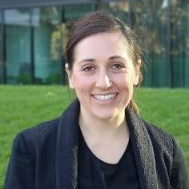Health Inequalities in Socially Disadvantaged Communities
A special issue of International Journal of Environmental Research and Public Health (ISSN 1660-4601). This special issue belongs to the section "Health Care Sciences & Services".
Deadline for manuscript submissions: closed (30 April 2022) | Viewed by 45855
Special Issue Editors
2. Department of General Practice, The University of Melbourne, Melbourne 3052, Australia
Interests: health inequality; health disparities; health promotion; health; public health; dental caries; health systems; qualitative research; thematic analysis
Special Issues, Collections and Topics in MDPI journals
2. Department of Paediatrics, The University of Melbourne, Melbourne 3052, Australia
3. SAHMRI Women and Kids, South Australian Health and Medical Research Institute, Adelaide 5001, Australia
Interests: social epidemiology; health inequalities; Indigenous health; maternal and child health; intimate partner violence; complex trauma
2. Adelaide Medical School, The University of Adelaide, Adelaide, SA 5000, Australia
Interests: maternal and child health; perinatal care; preterm birth
Special Issues, Collections and Topics in MDPI journals
Special Issue Information
Dear Colleagues,
At an international level, recognition that action is needed to address inequalities in health was first expressed in the Declaration of Alma-Ata in 1978. The Declaration stated that “the existing gross inequality in the health status of the people … is politically, socially and economically unacceptable”. Thirty years on, gross inequalities in health continue to exist within and between countries. These inequalities are both avoidable and modifiable. Reducing social inequalities in health is therefore an issue of social justice.
Working with communities to implement and evaluate multi-faceted, sustained efforts to overcome injustice are essential. The values and ethics underpinning the practice of research also have a critical role in producing meaningful outcomes for communities.
The aim of this Special Issue is to highlight pioneering research that explores innovative ways to understand and respond to the inequalities experienced by socially disadvantaged and marginalised communities. This includes but is not limited to First Nations and Indigenous populations and populations forced to flee from countries of origin due to war and human rights abuse. By highlighting these issues, this Special Issue will shine a light on the role of research, policy and community partnerships and innovative research practices in addressing health inequalities and achieving change. This Special Issue invites researchers of any discipline that focus on health inequalities in socially disadvantaged communities, including but not exclusive of social science, public health, anthropology, law and medicine.
Dr. Elisha Riggs
Prof. Stephanie Brown
Dr. Alice Rumbold
Guest Editors
Manuscript Submission Information
Manuscripts should be submitted online at www.mdpi.com by registering and logging in to this website. Once you are registered, click here to go to the submission form. Manuscripts can be submitted until the deadline. All submissions that pass pre-check are peer-reviewed. Accepted papers will be published continuously in the journal (as soon as accepted) and will be listed together on the special issue website. Research articles, review articles as well as short communications are invited. For planned papers, a title and short abstract (about 100 words) can be sent to the Editorial Office for announcement on this website.
Submitted manuscripts should not have been published previously, nor be under consideration for publication elsewhere (except conference proceedings papers). All manuscripts are thoroughly refereed through a single-blind peer-review process. A guide for authors and other relevant information for submission of manuscripts is available on the Instructions for Authors page. International Journal of Environmental Research and Public Health is an international peer-reviewed open access monthly journal published by MDPI.
Please visit the Instructions for Authors page before submitting a manuscript. The Article Processing Charge (APC) for publication in this open access journal is 2500 CHF (Swiss Francs). Submitted papers should be well formatted and use good English. Authors may use MDPI's English editing service prior to publication or during author revisions.
Keywords
- health inequalities
- social determinants
- co-design and community engagement
- intervention development and evaluation
- epidemiology, qualitative and mixed methods
- life course
- maternal, paternal, child, family and community perspectives
- indigenous, refugee and any population/community considered socially disadvantaged







